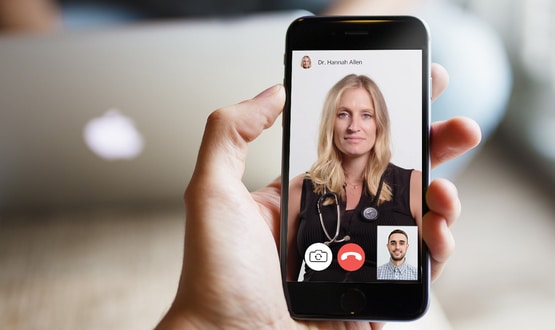Babylon’s GP at Hand model risks ‘destabilising’ care, professor warns

Babylon’s GP at Hand model risks “destabilising” care for patients with the “greatest need” if it continues to expand, a professor of health services has warned.
Martin Roland, Emeritus professor of health services research at the University of Cambridge, warned the digital provider only attracts the “fittest patients” leaving traditional GP services struggling to look after those with more complex needs.
The problem lies in the way GP surgeries are currently funded, he told Digital Health.
“GPs are largely paid by capitation, for example, for the number of patients on their list. Now imagine a situation where all patients attracted an equal capitation fee and the fittest half of a practice’s patients suddenly joined GP at Hand,” he said.
“The practice would be left with half their income but would still have to look after the sickest patients. That would clearly destabilise care for those in greatest need as GPs would no longer have the income to support the doctors, nurses and other staff needed to look after them.”
While GP surgeries get paid higher capitation for older patients and those in nursing homes, it’s not enough to compensate them for the money they lose when a fit patient switches practices, Roland said.
The GP at Hand model automatically de-registers a new patient from their old practice when they sign up to the service. The London-based service, which has recently been given the green light to expand to Birmingham, has already reached more than 50,000 patients.
Roland, who penned an editorial on GP at Hand in The BMJ, called on the NHS to urgently review their GP funding formula that “offers a private company a chance to profit from looking after fit people”.
“If it was the reverse and Babylon said ‘hey we can make a profit providing excellent care for frail older people using the current funding formula’, few people would complain. But they don’t,” he told Digital Health.
“Chronically ill patients make up 0.1% of their list. So that’s what needs urgent review – to ensure that the funding formula doesn’t disadvantage practices left with their older sicker patients to look after.”
Do all digital GP services pose the same risk?
Digital services should be offered as part of routine services, not in the “cream-skimming way” GP at Hand operates, Roland said.
“GPs adding on digital offerings to their practice repertoire won’t have the same effect, and many are,” he added.
“In Denmark, patients communicate by email with their patients – and there’s a standard payment in their GP contract. Many of their digital encounters are with older people, so there’s no reason why older and sicker people shouldn’t benefit from these offerings just as much as younger people.”
His concerns echo the recently published Ipsos Mori report into Babylon, which found the current funding model for GP at Hand may not be “appropriate”.
Published on May 23, the long-awaited evaluation was “not able to fully address” whether the service is affordable or sustainable.
When contacted for a comment, Dr Matthew Noble, UK Clinical Director of Babylon, said: “The NHS is struggling and has called for digital-first GPs where patients have a consultation over the phone and then go into a face-to-face appointment if they need one.
“Our technology enables GPs to give round the clock care every day of the year without costing the NHS a penny more. The independent review by Ipsos Mori shows 72% of patients prefer the quality of care at Babylon to their previous practice and are less likely to visit A&E – which makes sense because now they can speak to a doctor day or night and don’t need to wait at a hospital when their local practice is closed.”
Babylon Health achieved unicorn status last week after sealing $550 million (£454m) in fresh investment – sending its valuation to more than $2bn (£1.65bn).
The investment marks the largest ever fundraise in the European or US digital health delivery sector, Babylon claimed.
But the company has faced fierce criticism over a funding deficit at Hammersmith and Fulham CCG.
MP for Hammersmith, Andy Slaughter, had called on the service and any potential expansion to be suspend until the NHS has a better understanding of how digital services will impact primary care, following previous “serious concerns” about the more than £20m funding deficit the GP at Hand had caused the CCG.



